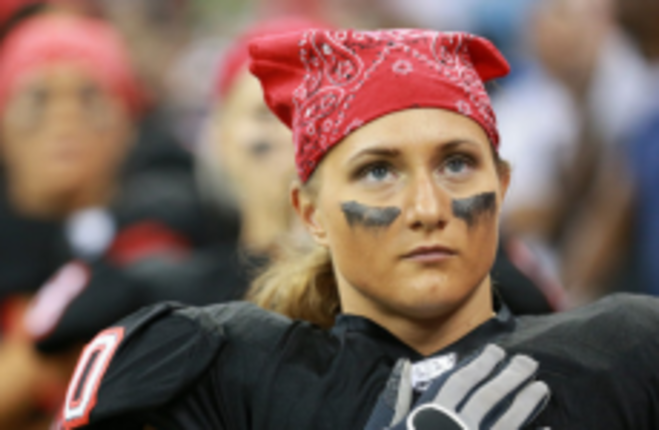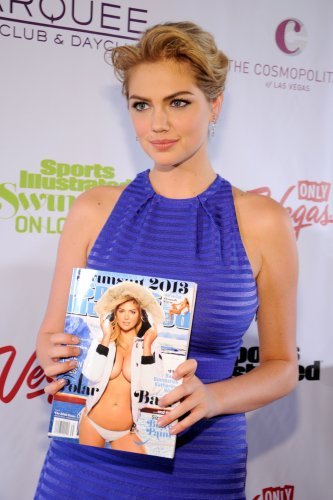IN HIS BOOK, The Red Sox Years, Terry Francona reveals how the team’s owners – John Henry and Tom Werner – commissioned a €78,000 study to determine how to make Boston more appealing to the general public after failing to win them over in 2010.
“[It] told us we didn’t have any marketable players, we need some sexy guys,” Theo Epstein is quoted as saying.
And while the former Red Sox General Manager was reported to be “upset, amused… and angry” with the finding, it didn’t stop him from trying “to build a sexier team for 2011.”
Now, of course, the word sexy can mean many things. It can be used to describe skill and talent as well as just looks.
However, one of the findings of the Red Sox study was that local TV ratings were lower than they should be because New England women didn’t find the team attractive.
Like Epstein, it’s difficult to read that and not run the gamut of emotions from bemused to bewildered but this is an issue that has plagued elite female athletes for decades.
A problem through the ages
In 1896, when Baron DeCoubertin revived the Olympic Games, women were entitled to watch but barred from competing. Indeed, according to the book Changing the Game, the medical establishment at the time went so far as to warn women of the health risks of ‘vigorous athleticism’, particularly to the reproductive system.
In the early 20th century, as medical misconceptions were assuaged by science, societal barriers appeared in their place to ensure sexism persisted in sport. According to Mary McGill of Fanny.ie, their are many reasons for this:
“[I think] it’s borne out by the lack of coverage, or the selective coverage, women in sport still receive, not to mention the poor levels of funding and support available to them. In the face of all that, we are still managing to produce the likes of Katie Taylor, our female rugby team, Annalise Murphy, etc, it makes the achievements of these women all the more incredible and hard won.”
Another issue modern female athletes face is having their achievements taken seriously. Sports Illustrated, in publication since 1954, describes itself as not just a sports magazine but the sports magazine. It is read by 23 million people a week and publishes 56 issues a year.
Excluding the ‘swimsuit’ edition, female athletes appear on the cover of just one issue a year on average.
Are we really to believe that male sporting achievements outstrip those of their female athletes so consistently every week? Of course they don’t, but the sad fact is you’re more likely to see Kate Upton, a model, on the front of Sports Illustrated than you are Katie Taylor.
Image: AJM/AJM/EMPICS Entertainment
Money talks
This gulf in our perception of female sport is reflected in the prize funds available to winning female athletes. The total prize fund available on the PGA Tour, for example, is five times that on the LPGA Tour. When they finished third in the 2003 Women’s World Cup, the US team received €19,500 each. Their male compatriots had earned €155,000 each for reaching the quarter finals of their World Cup the previous year.
There are a multitude of reasons for this. Female events tend to be less well attended and receive fewer viewers and therefore attract less advertising revenue. This in turn leads to poorer prize funds.
However, while there are biological differences that mean men and women can’t compete on the same playing field in a range of sports, the Women’s Sports Foundation has found that paying men more for participating in essentially the same sport gives women “less incentive to push themselves and discourages future female participation in sport.”
The underlying reason for all of this is that we, wrongly, have developed a belief that female sport just isn’t as legitimate an endeavour as male sport.
Change from an unlikely source
YouTube: Legends Football League
That said, the image of women in sport may be changing, and that metamorphosis could be aided by the most unlikely of sources, the former Lingerie Football League.
The organisation, now known as the Legends Football League, will be hosting try-outs for it’s first ever Irish team in Dublin this Saturday. That team will compete in LFL Europe with franchises from Britain and Germany.
Aside from a name change, the league has started to give its players more appropriate padding and replace the lingerie aspects of the uniform — which often included a garter belt — with more traditional athletic clothing. Other changes will include amending the league’s tag line from ‘True Fantasy Football’ to ‘Women of the Gridiron’ and removing “any sexy female figures” from team logos.
This evolution of the LFL, according to Chairperson Mitchell S. Mortaza, is designed to reflect it’s position as one of the fastest growing pro-sports leagues in the world.
“While the Lingerie Football League name has drawn great media attention allowing us to showcase the sport to millions, we have now reached a crossroad of gaining credibility as a sport or continuing to be viewed as a gimmick. In order to reach the next milestone, we feel the focus has to be the sport and our amazing athletes.”
However, McGill believes the moves do not go far enough. “Well, the new ‘performance wear’ they’re touting actually looks a lot like a glorified bikini to me. I don’t doubt the athletic prowess of their players but I can’t help thinking this is a publicity stunt.”
It is true the league still has a long way to go. As well as the refusal to allow the women to wear the same football clothing and padding as their male counterparts, team names like Chicago Bliss, Las Vegas Sin and LA Temptation do nothing but pander to the stereotype of female athletes as objects of male sexual gratification.
The moves do, at least, represent a step in the right direction and reflect some intent by the league to give its participants the one thing all athletes want; to have their sporting achievements acknowledged.
As McGill says: “If you want to be truly ground-breaking, start a TV station or a fund to support women’s sports. And while you’re at it, focus on the players’ sporting abilities to grab attention, not their bodies.
“A shocking concept, I know, but maybe it will catch on.”


